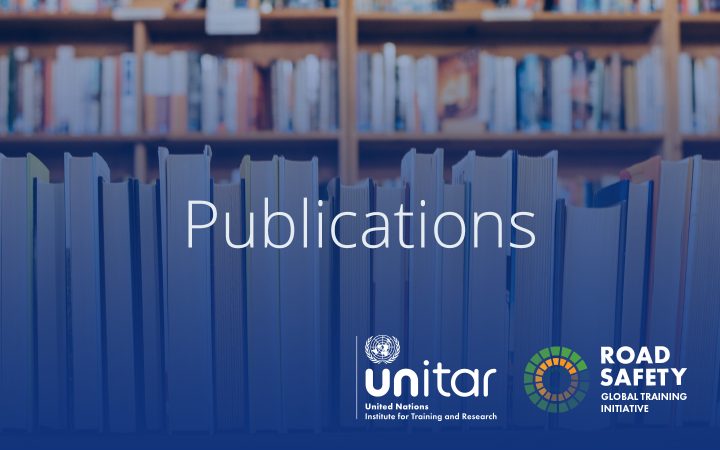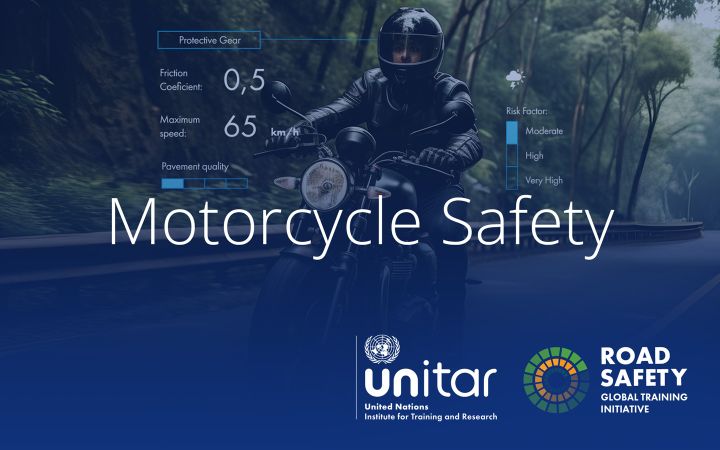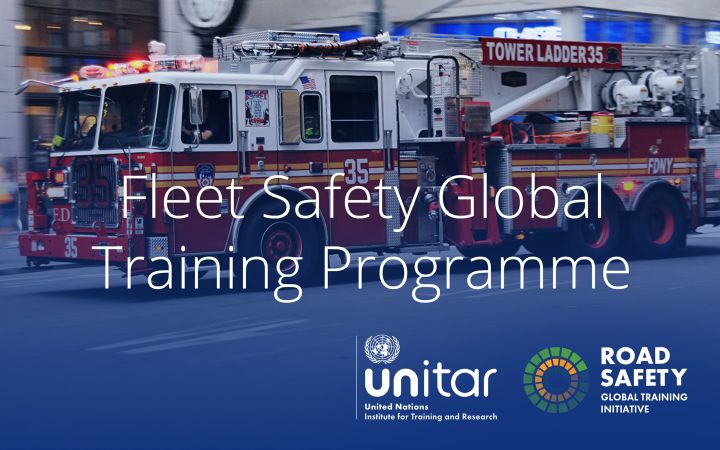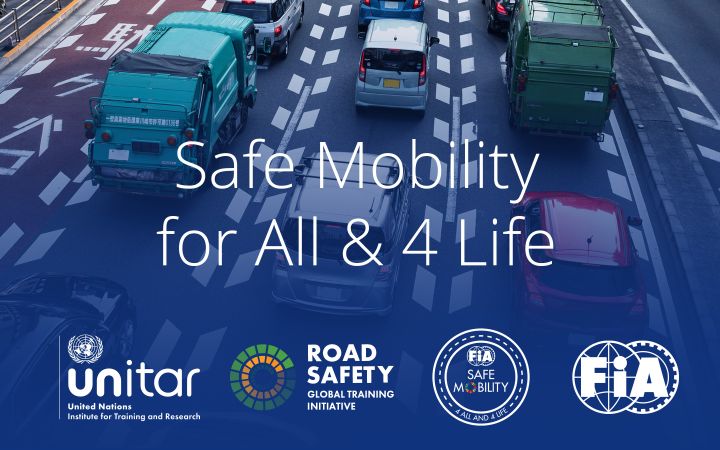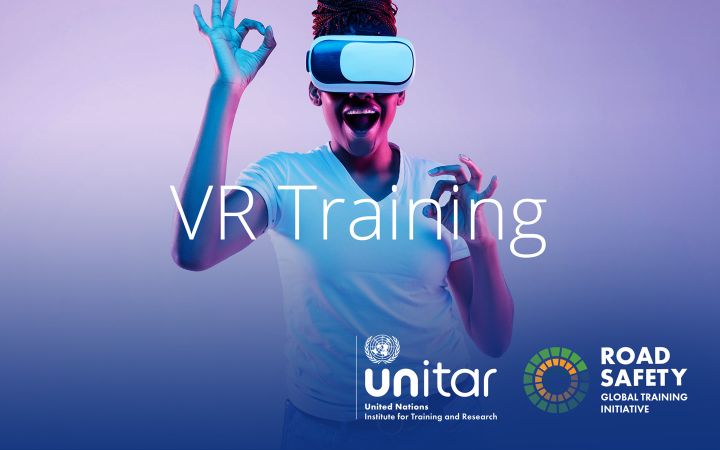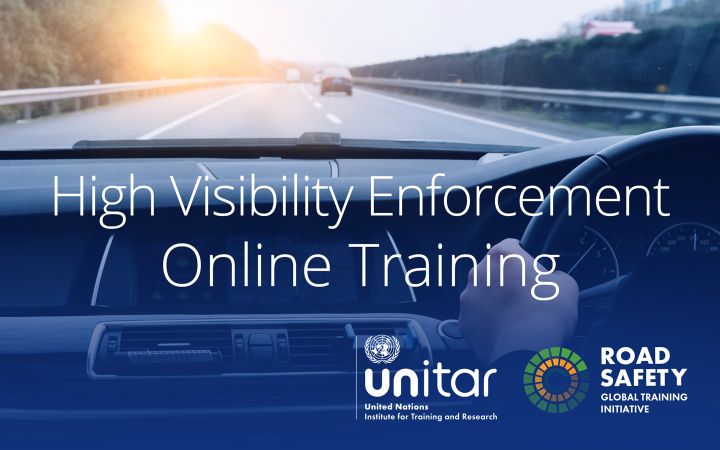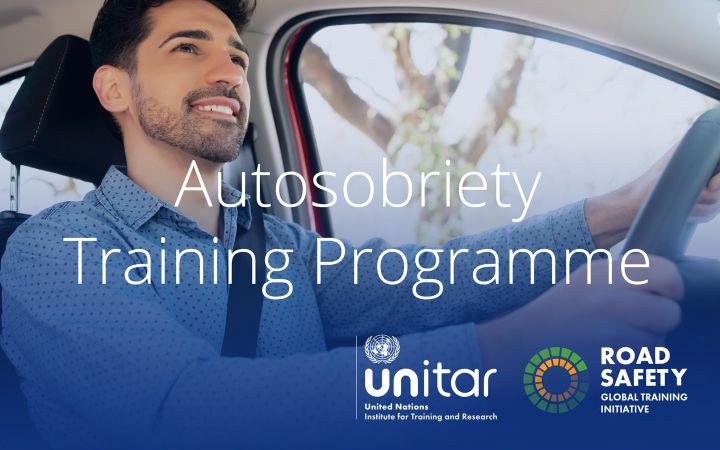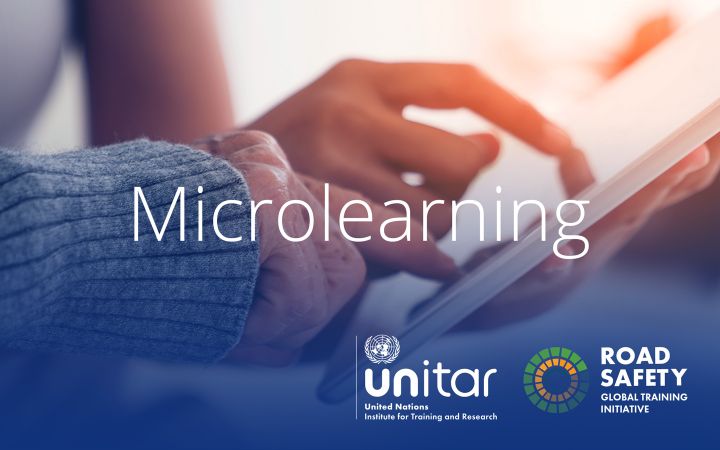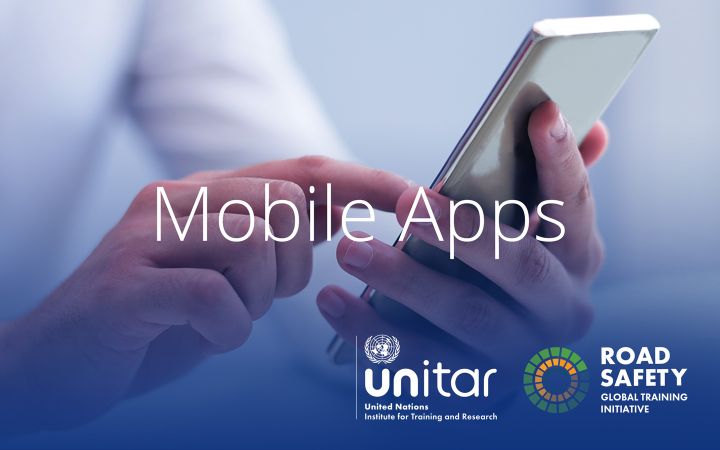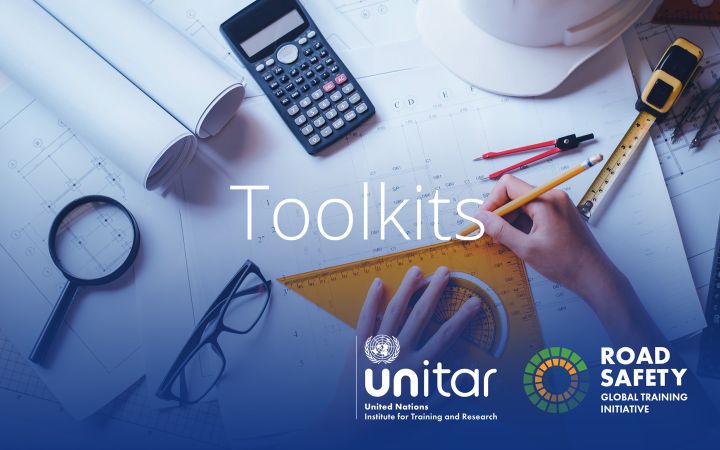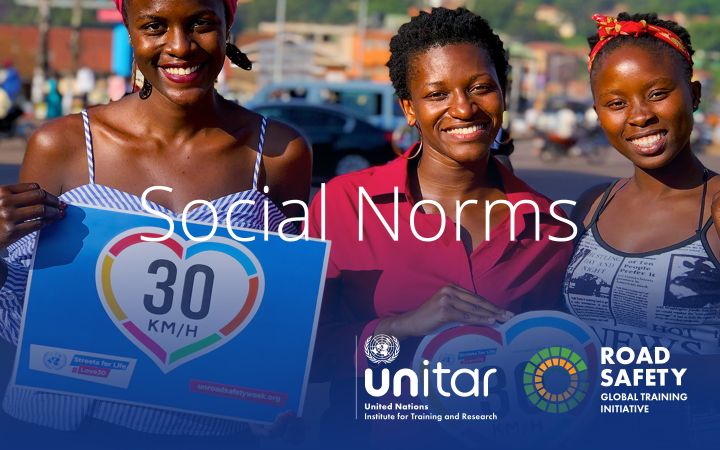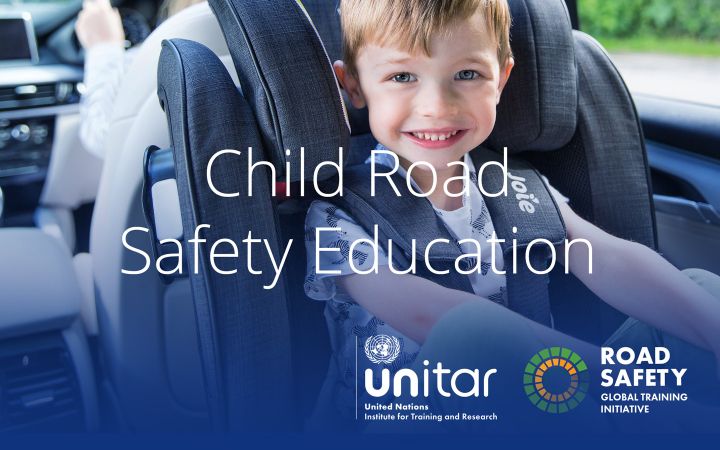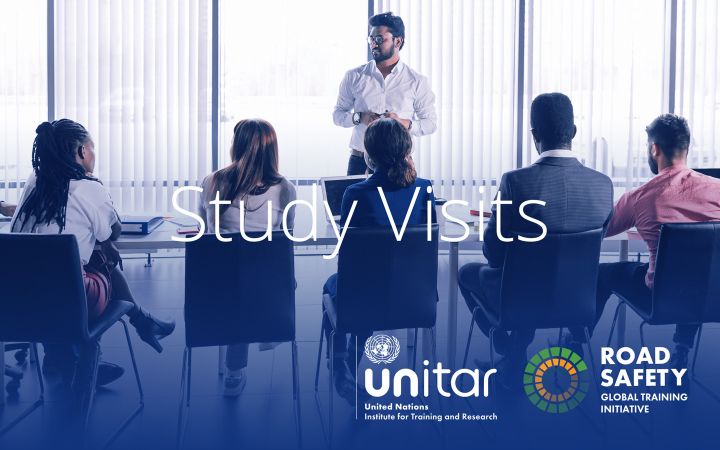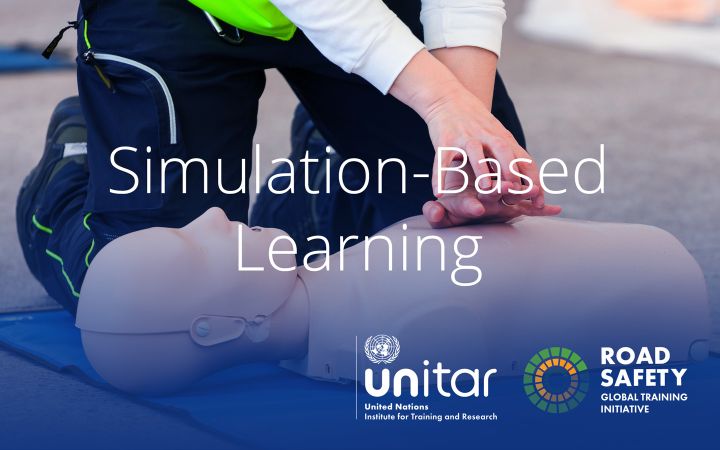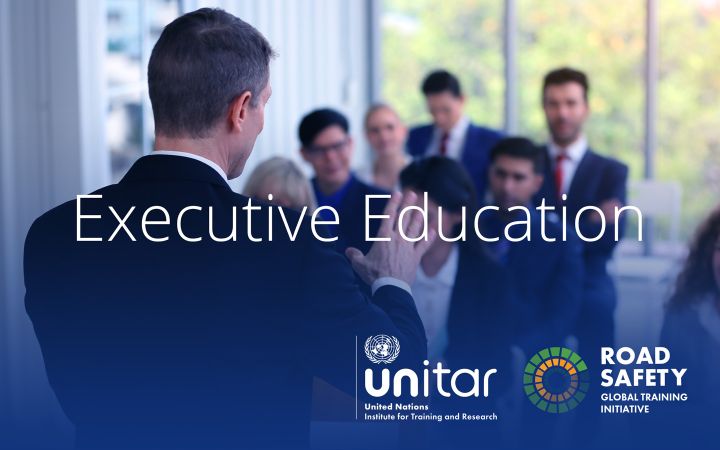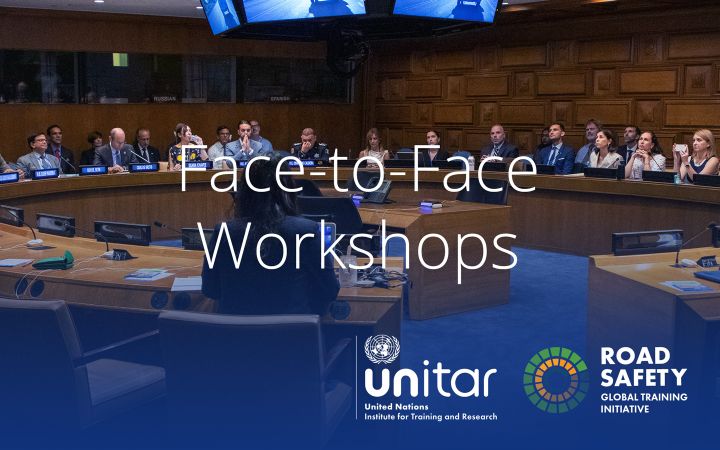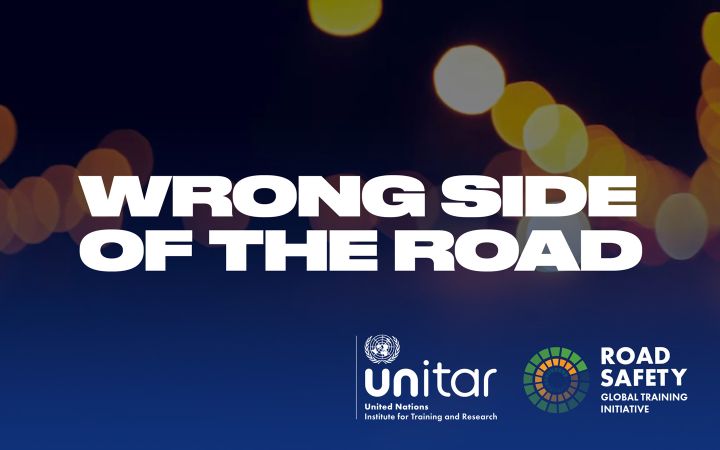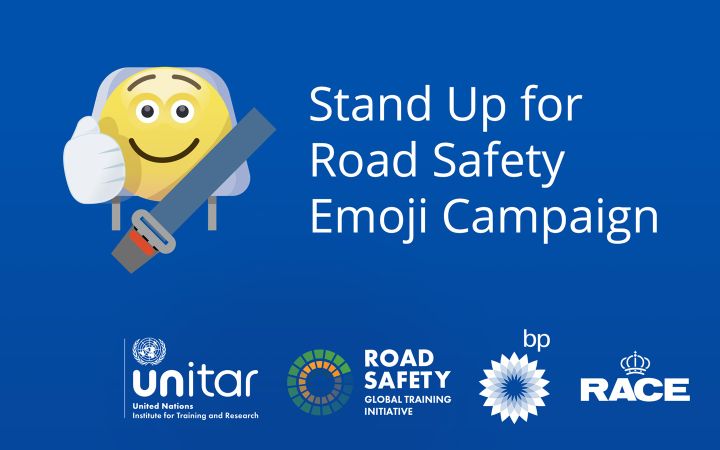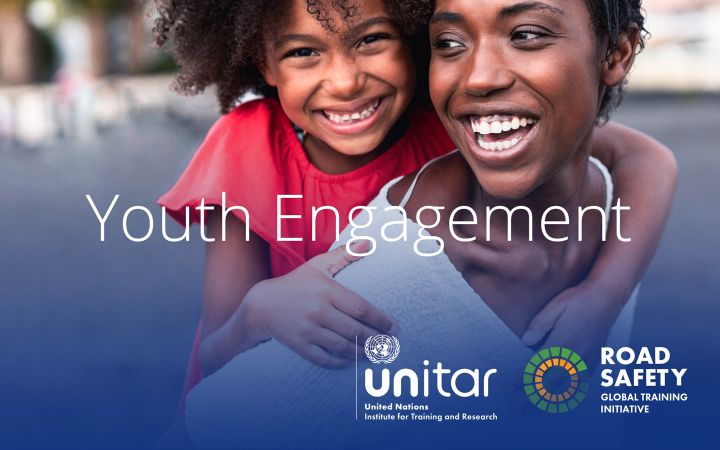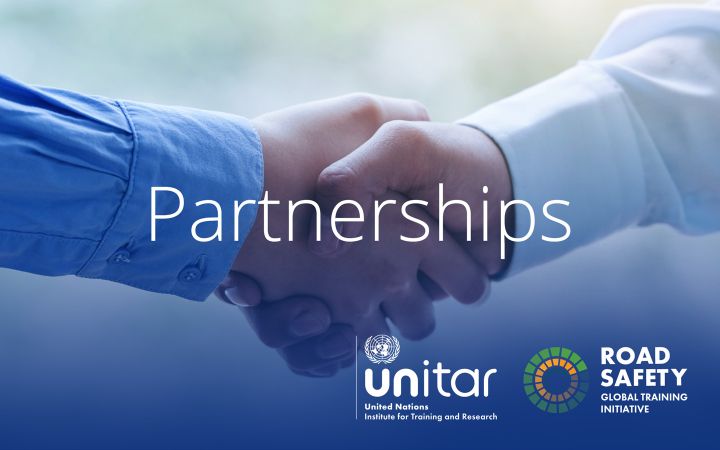The road traffic-related deaths and injuries have unparalleled health and socio-economic implications on society, as a whole. A staggering 1.19 million people die on the world’s roads every single year with an additional 20 to 50 million people suffering injuries, often resulting in disabilities. As of 2019, road traffic crashes are the leading cause of death for children and young adults aged 5 to 29 years and are the 12th leading cause of death when all ages are considered. Two-thirds of the global fatality statistics occur among people of working age (18–59 years), cutting short lives during their most productive years. This causes significant health, social and economic harm throughout society.
UNITAR’s Road Safety Global Training Initiative aims to support governments to help them reach the Global Road Safety Performance Targets and advance towards achieving the targets of the Decade of Action for Road Safety 2021-2030, with the ambitious goal of reducing by 50% road traffic deaths and injuries by 2030.
Our initiative is structured around three interrelated pillars:
- Knowledge and Capacity Building: Developing the expertise of government officials, law enforcement, and road safety professionals through a comprehensive suite of training. This includes everything from executive education and post-crash response simulations to specialized courses on data management, high-visibility enforcement, and the use of social norms to influence behaviour.
- Public Awareness: Enhancing public understanding of key risk factors through educational projects, youth engagement, and multimedia campaigns. These initiatives aim to shift social norms around high-risk behaviours like drink-driving and promote a culture of safety for all road users.
- Interventions and Innovations: Translating knowledge into action by developing cutting-edge tools and fostering multi-stakeholder collaboration. This includes pioneering technology like our AI-powered risk assessment app and implementing local demonstration projects with partners to test and scale evidence-based solutions where they are needed most.
Capacity Building
Publications
UNITAR produces rigorous research and publications that advance understanding of road safety challenges and inform evidence-based interventions worldwide. Through systematic reviews, meta-analyses, and innovative applications of artificial intelligence and machine learning, these publications examine critical issues such as drink-driving among youth, behavioral trends, contributing factors, and the effectiveness of prevention strategies. The research synthesizes scientific knowledge while analyzing real-world data to provide actionable insights for policymakers, government officials, educators, and practitioners.
Please click here to learn more about our Publications.
Hackathon
Hackathons accelerate innovation in road safety by bringing together experts, students, developers, and policymakers to create data-driven solutions for safer mobility. UNITAR leverages these events to engage diverse communities in co-developing tools and strategies that reduce road traffic deaths and injuries globally.
In this context, UNITAR, in collaboration with York University and CIFAL York, is organizing the MotoAI Virtual Hackathon on 14–15 November 2025. This two-day event will invite global participants to enhance the MotoAI application, UNITAR’s AI-powered motorcycle safety platform, through innovative app features, public awareness campaigns, and community-centered solutions.
Motorcycle Safety
Motorcycle users are among the most vulnerable road users worldwide, accounting for nearly 30% of all road traffic deaths—a figure that rises to 60% in low- and middle-income countries. To contribute to motorcyclists’ safety, UNITAR is pleased to develop MotoAI: the Intelligent Motorcycle Road Safety Assessment App.
Developed by UNITAR with the expert support of York University and launched during the 8th UN Global Road Safety Week 2025, MotoAI is an innovative, web-based platform powered by generative AI and designed to provide real-time, location-based motorcycle safety risk assessments and tailored recommendations for riders, planners, and policymakers.
To learn more about Motorcycle Safety please click here. To try the MotoAI app, please click here.
Fleet Safety Global Training Programme
In collaboration with Together for Safer Roads, the Fleet Safety Global Training Programme takes the best practices of the largest public and private sector fleets and leading road safety technology companies, distilling this information into a comprehensive fleet safety programme.
The programme is structured around three key pillars: Training and Development, Safety Leadership and Technology; which includes executive coaching and before and after benchmarking. Its primary goal is to empower companies to be responsible for their people and as a result, create a culture of safety and welfare for them – as both employees and communities.
To learn more about our Fleet Safety Global Training Programme, please click here.
Safe Mobility for All & 4 Life
The Safe Mobility 4 All & 4 Life Initiative is a collaboration between UNITAR, the International Automobile Federation (FIA) and the FIA Foundation to address various aspects of road safety through training, capacity development, learning and research with the ultimate aim of informing decision-making and public policy.
The initiative seeks to leave a legacy in developing countries by improving professional capacities and local commitment to develop and implement national strategies to improving mobility and road safety.
To learn more about Safe Mobility for All & 4 Life please click here.
VR Training
As virtual reality is reshaping the way knowledge is transmitted, UNITAR aims to overcome the barriers of distance-training by offering new technologies that recreate realistic road safety scenarios and enable an immersive, sensory learning experience. Virtual reality allows the user to get a feeling of interacting with a live and real environment, through the use of 3D images, 360º videos, and audiovisual interactivity.
Please click here to learn more about our VR Training Programme.
High Visibility Enforcement Online Training
UNITAR’s High Visibility Enforcement (HVE) Training Programme aims to strengthen the capacities of law enforcement officers in countries around the world to implement innovative interventions that reduce the number of road traffic injuries and fatalities related to drivers using alcohol.
The online component of the HVE Training Programme brings the expertise and experiences gathered in the field to be used widely amongst government officials responsible for road safety and law enforcement, serving as a tool to adapt and apply the HVE approach in their respective contexts.
Autosobriety Training Programme
The Autosobriety Training Programme consists of educational tools that aim to contribute to reduce and prevent alcohol-related traffic fatalities and injuries, and ultimately support UN Global Road Safety Performance Target 9: By 2030 halve the number of road traffic injuries and fatalities related to drivers using alcohol.
It is dedicated to educating drivers about the dangers of drink-driving and promoting safer road practices. By raising awareness on the global impact of alcohol-impaired driving, local road safety contexts, legal frameworks, and prevention strategies, the programme empowers road users to make safer choices.
To learn more our Autosobriety Training Programme, please click here.
Micro-learning Courses
Through the Educate All initiative, UNITAR aims to increase access to education on critical topics such as road safety, risk factors causing road traffic deaths and injuries, as well as post-crash and emergency response techniques.
Mobile Apps
As mobile apps become a significant part of learning delivery, UNITAR’s Road Safety Global Training Initiative aims to provide training aboutpractical solutions and results-based interventions in a flexible way, allowing users to learn from anywhere and anytime, with the advantage of being able to go through the learning content even when they are offline.
Management Practices for Safer Roads Toolkits
These Toolkits are an interactive e-learning tool that presents a management methodology that can help improve road safety by:
- Collecting data on the number and location of deaths by road user type
- Identifying hazardous and critical road locations and sections where excessive numbers or severity of crashes occur
- Outlining corrective measures
- Implementing interventions and monitoring results
To access useful material related to the Management Practices for Safer Roads Toolkit and Road Safety Practices for Motorcycle Users Toolkit, please click here.
Social Norms
Understanding how social norms act as powerful constraints on individual attitudes and behaviors is crucial for effective policy interventions. UNITAR offers online training on social norms to provide government officials and those responsible for road safety policies with tools to develop effective campaigns that address specific risk factors for road traffic injuries, placing special emphasis on those risky behaviors that are on the rise during and after COVID-19.
To learn more about “Designing Effective Campaigns to promote Social Norms aimed at improving Road Safety”, please click here.
Child Road Safety Education
Bringing the expertise and best practices from different partners, UNITAR offers training and learning opportunities for public officials and legislators on the implementation of comprehensive programmes that promote the use of child restraint systems, in order to save the lives of the most vulnerable. For media and journalists on road safety and social communication. For parents and grandparents on the proper use of child restraint systems and seat belts.
The overall goal of UNITAR’s activities in this area is to contribute to advance Global Road Safety Performance Target 8: By 2030, increase the proportion of motor vehicle occupants using safety belts or standard child restraint systems to close to 100%.
Study visits
Study visits allow participants to dive into successful road safety programmes implemented by other countries and to understand strategies, as well as instruments of other countries, while facilitating linkages with academia, industry and government. Study visits also contribute to establish long-term global partnerships to accelerate collaboration and interventions that improve road safety.
Simulation-based Learning
For first responders on post-crash response core elements. Simulations aim to enhance the capacities of first responders on post-crash response core elements such as emergency care and rescue (extrication) techniques that apply to children at the scene of a crash.
Executive Education
Designed for working professionals at mid-career to senior career level who have or aspire to have leadership positions in government entities, international organizations, NGOs, as well as in the private sector.
Our courses aim to build leadership and management capacity to design, advocate for, and implement effective road safety programs and policies.
To learn more about Excutive Education please click here.
For more information, contact: roadsafety@unitar.org
Face-to-Face Workshops
UNITAR, in collaboration with its CIFAL Global Network, offers face-to-face and online training opportunities aimed at enhancing the capacity of government authorities, law enforcement officers and key stakeholders on road safety management and leadership.
Changing road users’ behavior on key risk factors for road traffic injuries (speeding, drunk–driving, distracted driving, and the failure to use helmets, seat belts and child restraints properly or at all) is a key component for improving road safety. UNITAR’s training activities aim to help identify and implement strategies that improve road user behavior and increase awareness of such risk factors.
Public awareness
Wrong Side of the Road – Educational Project
This educational project is designed to help people understand the consequences of drink driving through speaking to people who made the decision to get behind the wheel after drinking.
What happens after you make the decision to drink and drive? All stories are real and aim to help prevent other people from making the same mistakes.
To learn more about Wrong Side of the Road please click here.
Stand Up for Road Safety Emoji Campaign
UNITAR is pleased to present the Emoji Campaign “Stand Up for Road Safety” developed with the support of BP and the Royal Automobile Club of Spain (RACE) to promote respect of traffic rules and good road safety behavior by all road users.
Youth engagement
Changing Youth and road users’ behavior on key risk factors for road traffic injuries (speeding, drunk–driving, failure to use helmets, seat belts and child restraints properly or at all) is a key component for improving road safety.
UNITAR, together with CIFAL Centres and in collaboration with academic institutions, NGOS, and the private sector, hosts educational programmes and delivers campaigns to raise awareness among youth about the importance of adopting a respectful traffic culture in order to prevent and reduce traffic incidents.
Conferences
Conferences follow a multi-stakeholder approach, bringing together government authorities, businesses, academic institutions, international organizations, road safety experts, and law enforcement agencies to exchange knowledge and innovative solutions to reduce road traffic fatalities, while fostering understanding and collaboration.
Partnerships
Partnership for Action on Road Safety
Facilitating multi-stakeholder collaboration is essential. This initiative seeks to mobilize public-private sector collaboration to implement local demonstration projects that help cities reduce deaths and injuries caused by traffic crashes.
Read more about our Partnership for Action on Road Safety here.
Reports
UNITAR’s Road Safety Global Training Initiative combines its experience in training and research to create adapted road safety programmes wherever it’s needed most. Explore our reports to better understand the Initiative's scope and how, through different activities and components (capacity building, public awareness and partnerships), it fosters road safety around the globe.
For more information on the Road Safety Global Training Initiative, please download our catalogue here, or contact us at: roadsafety@unitar.org.


